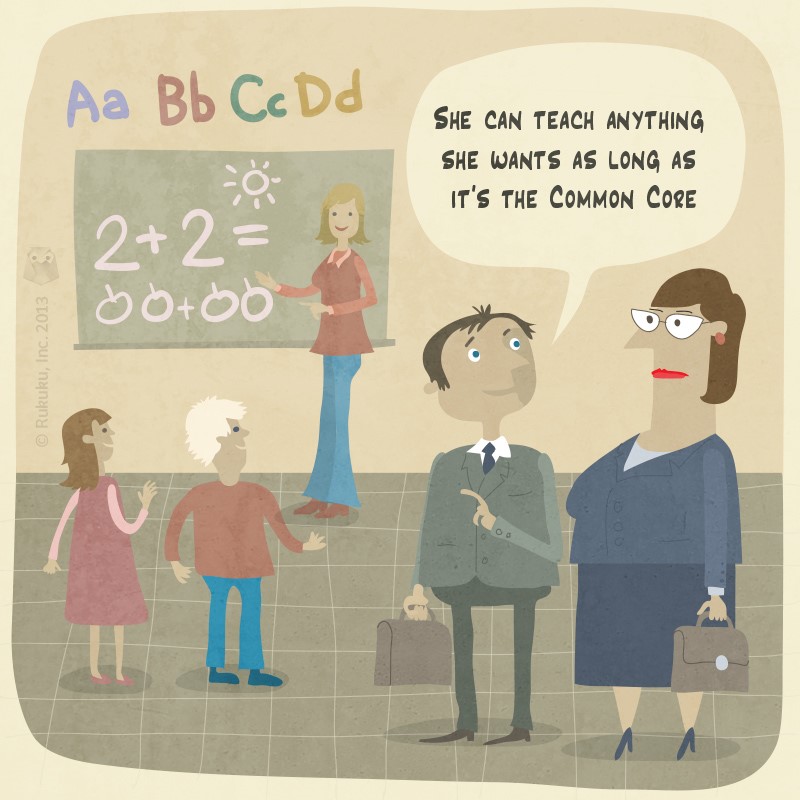Henry Ford once said that any customer could have a car painted any color he liked as long as it was black. Many opponents of the Common Core standards see policymakers giving teachers a similar offer. Teach whatever you want as long as it is the Common Core. Proponents say the standards set broad goals and give freedom to teachers to employ their own methods toward reaching those goals. Critics say they box teachers in, preventing them from adjusting their class material to the needs of their students.
The basic idea behind the Common Core is that students around the country should study similar topics at similar times. For example, all students should study subtraction in the second grade and past tense verbs in fourth.—Disclaimer: I am making these up for the sake of illustration. I am already too far behind schedule to read through all the standards. Anyway, the point is, all the teachers have the same goals and can use various methods to reach those goals.
Proponents of the standards see them as key to equalizing educational experiences and educational opportunities around the country. It doesn’t seem fair that students in rural Kentucky wouldn’t get opportunities to study the same material as the students in New York City. Or vice versa. Common Core material also prepares students for SAT and ACT college entrance exams. By making sure all students cover the same material, Common Core proponents are hoping to level the playing field.
That approach may ignore circumstances, however, which require teachers to slow down and make sure students understand the material. Students in low income areas, for example, or whose first language is not English, may not be ready to study the same topics as students in an upper class suburban neighborhood.
Further complicating things, the combination of the Common Core and the No Child Left Behind policy produces a whole lot of tests. Those test results significantly influence a teacher’s future. Weighing those test results too heavily would reward a teacher for effectively teaching test-taking skills, but not necessarily being good teachers. In this sense, like Henry Ford’s offer, teachers can teach anything they want as long as it is the stuff on the tests.
Let me throw out a hypothetical here: What if a teacher has to spend extra time helping students learn to play well together? Seriously, I’m not joking. Students from rough backgrounds often need time to learn to get along better with each other. That is a valuable, life-long skill. And hats off to a teacher that can actually teach that. But will it help on those dang test scores? Probably not. And if so, maybe not until a few more years down the road.
I mean, surely it is not bad to have some general direction on what to teach in class and occasional measures of effectiveness in teaching that material. The problem is, it is tough to properly measure all the many roles that teachers perform. The most profound ways in which teachers influenced me were only loosely related to coursework. So how can we measure the importance of a teacher that inspires children to travel, to help others, to be good friends and neighbors?
I don’t have the answer for that, but I am very interested to know what our readers think. How can you judge the effectiveness of teachers when they are expected to perform so many different roles? And how much flexibility should teachers have in determining the academic material covered in class?

